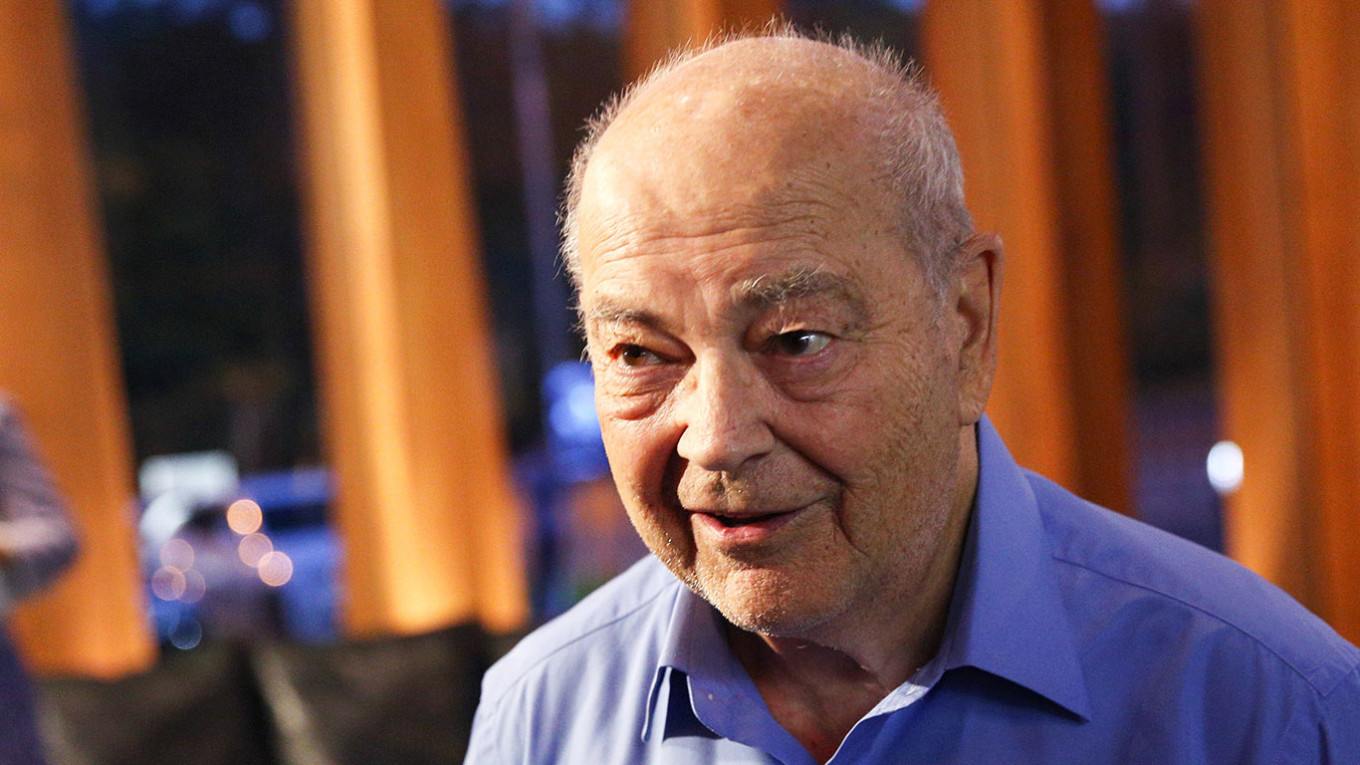Inventor, scientist, educator, entrepreneur and philanthropist Dmitry Zimin died in Switzerland at the age of 88 on Wednesday. He had been undergoing treatment for cancer for many years.
His death was announced by his son, Boris, who wrote: “One of the best people in our country has died. My father loved life wholeheartedly and lived a long life. I thank him for everything he created and everything he was… He passed away fully conscious, at peace, a little sad for us and for life, but also with relief — he had been very ill in recent months.”
Zimin was best known for founding Russia's first mobile phone service and later for his extensive work in philanthropy and his unwavering support for democratic institutions.
Zimin spent the first half of his life in science. A graduate of the Moscow Aviation Institute, in 1962 he began to work at the Radio Technical Institute of the Academy of Sciences. He worked there for nearly 40 years, heading various departments. The author of more than 100 scientific papers and inventions, he was one of the lead designers of the anti-ballistic missile defense radar system that protects Moscow.
In the 1990s, when there was scant funding for education and science, Zimin began putting some of his inventions into the marketplace, including the country’s first satellite television system and the first cellphone system. He found a foreign partner for the latter and founded Vimpel Communications (VimpelCom), the parent company of Beeline — still one of Russia’s largest and most successful cellular communications companies. In 1996, VimpelCom became the first Russian company to be put on the U.S. stock exchange.
In 2001, Zimin sold his controlling share of VimpelCom and began the second major chapter in his life as a philanthropist. In 2002 he founded Dynasty, the only charitable organization in Russia that supported scientific research and educational institutions as well as teachers, schoolchildren, young scientists and mathematicians.
In 2008, he created the Enlightener Award for the best authors of popular science books written in Russian. His Dynasty Library project translated and published more than 100 foreign works of popular science for distribution in Russia.
Zimin received many awards for his scientific and philanthropic work, including from the Russian Ministry of Science and Education “For Commitment to Science” and the Carnegie Medal of Philanthropy — making him the first Russian citizen to receive the honor.
But in 2015, Russia's Justice Ministry designated his Dynasty foundation as a “foreign agent.” Zimin disbanded the organization and moved abroad. He founded the Zimin Foundation, which continues to award the “Enlightener” prize and supports projects in education, science, healthcare and culture in Russia and around the world.
It was Zimin's foundation and family that paid for Alexei Navalny to be flown to Germany for treatment after his poisoning with a nerve agent in 2020.
Zimin was deeply loved for his work and philanthropy, his support of democratic institutions and groups, his kindness and unflinching honesty.
When news of his death broke, tributes flooded social media. Valya Gornostaeva, the head of Corpus Publishers, wrote that he was “a man who did more than anyone else for Russia.” Her husband, journalist Sergei Parkhomenko, called him a “one of the greatest philanthropists in Russia, an extraordinary person of unique nobility and kindness. And completely fearless.”
Journalist and commentator Oleg Kozyrev wrote that, “When future generations look back on these dark years they will remember him as someone who did all he could so that Russia wouldn’t fail, wouldn’t falter, wouldn’t collapse, but would be great."
He will also be remembered for his comment on Russia's democratic backsliding in the 21st century: “I’m a patriot, it seems, in the sense I’m not ashamed of any other country as much as I am ashamed of my own. Bitterly, bitterly ashamed.”
Funeral arrangements have not yet been announced.
A Message from The Moscow Times:
Dear readers,
We are facing unprecedented challenges. Russia's Prosecutor General's Office has designated The Moscow Times as an "undesirable" organization, criminalizing our work and putting our staff at risk of prosecution. This follows our earlier unjust labeling as a "foreign agent."
These actions are direct attempts to silence independent journalism in Russia. The authorities claim our work "discredits the decisions of the Russian leadership." We see things differently: we strive to provide accurate, unbiased reporting on Russia.
We, the journalists of The Moscow Times, refuse to be silenced. But to continue our work, we need your help.
Your support, no matter how small, makes a world of difference. If you can, please support us monthly starting from just $2. It's quick to set up, and every contribution makes a significant impact.
By supporting The Moscow Times, you're defending open, independent journalism in the face of repression. Thank you for standing with us.
Remind me later.






